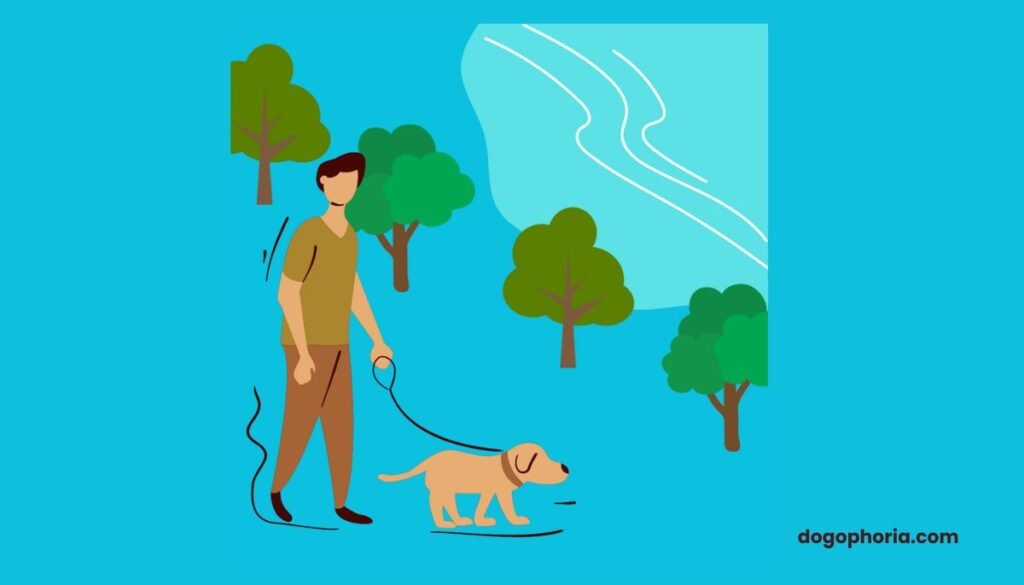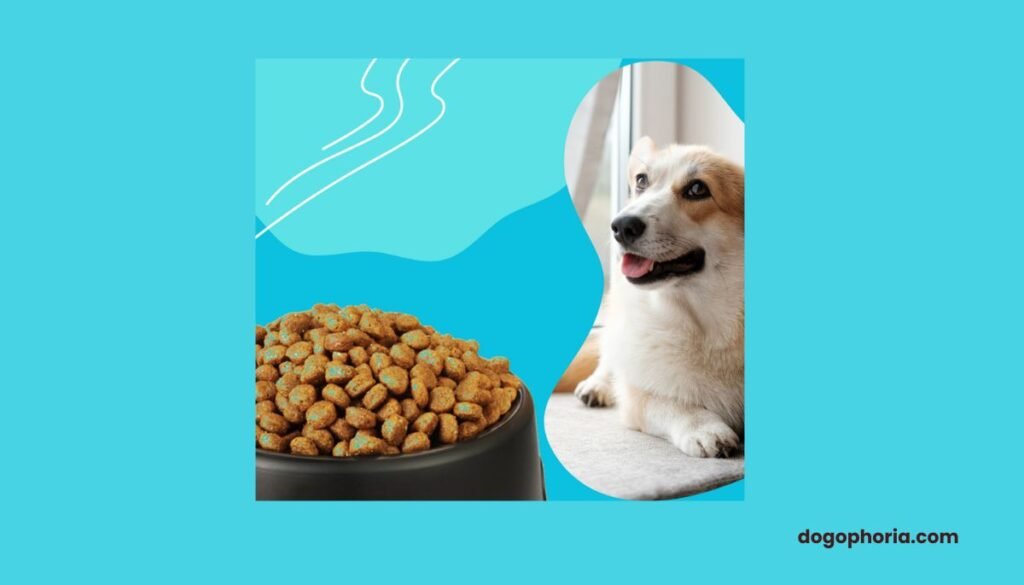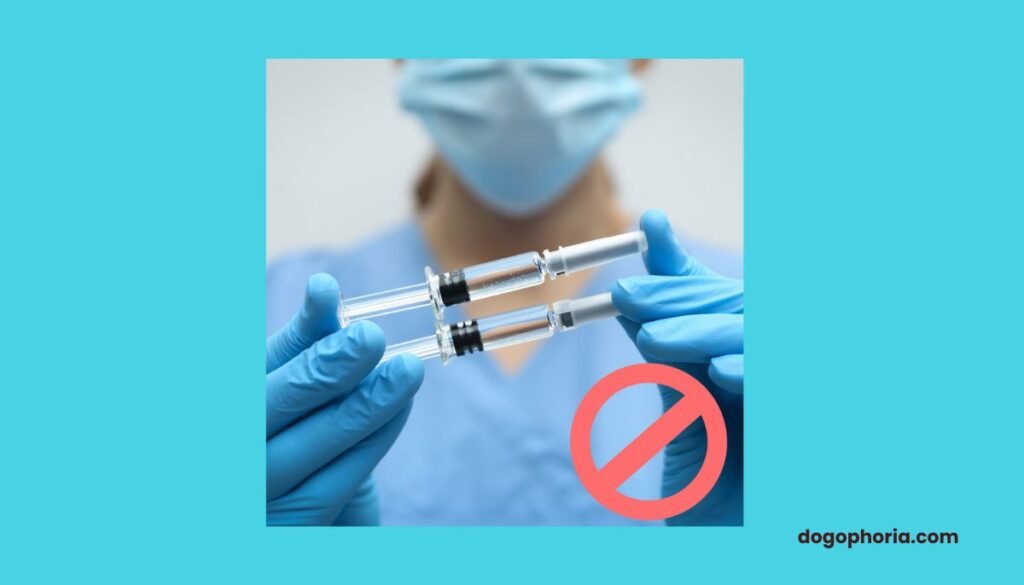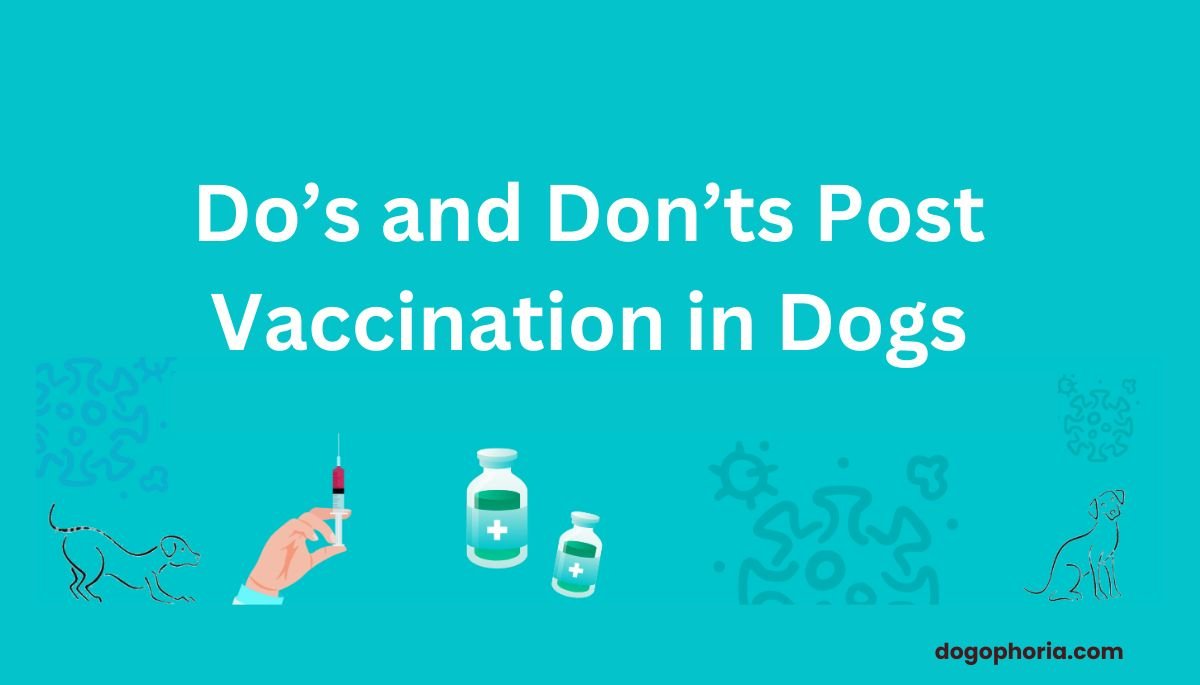Congratulations on vaccinating your Dog! You’ve made a crucial step in safeguarding your furry friend from many diseases. However, the journey doesn’t end here. Here are 3 Do’s and Don’ts After Dog Vaccination – A Must Know Revealed
Table of Contents
1) Immediate period post vaccination is critical and demands even more care.

To delve deeper and understand more on this topic, let’s first understand what a vaccine is. It’s basically a mix of disease-causing agents, either dead or alive. Dead agents can’t cause disease, and live agents are made harmless. In other words, they’re hypnotized to forget their disease-causing power.
New when get back to vaccines, first or couple of vaccines shots in the Initial vaccination regime, till the age of 12 weeks actually withdraw puppy’s natural defense mechanism. Your pet becomes more susceptible to diseases during this period.
Newborn puppies have an underdeveloped immune system. It is impossible for a puppy to develop a full-fledged protection. Here comes the role of Mother Dog. Mother dog prepares some sort of immune elements at her own and transfers it to puppy via her first milk. These immune elements are known as ‘Materially derived antibodies or MABs’. Amount of MABs transferred in puppy’s body will depend on various factors like amount and frequency of first milk taken in first 2 days after birth, mother dog’s vaccination status etc. These MABs keep on protecting puppy from various disease period only after which puppy has to develop his own immune system. Vaccination plays pivotal role in this regard.
Vaccines, being a mix of disease-causing agents without the disease-causing ability, use up some of the MABs when injected. This process continues with each vaccine shot, reducing the MABs until the puppy’s immune system starts developing its own defense mechanism.
Most vaccines require at least two initial doses to immunize. The first dose prepares the immune response, and the second dose, given 2-6 weeks later, provides full protection. It takes about a week for immunity to develop after the second dose. Therefore, the minimum time for immunity to start working is roughly 3 weeks after the first dose. During these 15 to 21 days in the initial vaccine series, puppies are more susceptible to diseases. This may not holds true with the advent of new technologies in the vaccine however time will decide it’s true potential.
So, what is the solution?
Simple! Keep your puppy away from public places, parks, shelters, and holiday homes during these critical days. Avoid outings and walks, and don’t let them interact with other pets. Deploy these restrictions for 21 days only. It may seems ruthless however, these temporary restrictions are always better than the risk of life-threatening diseases.
2) Nutritious diet after Dog Vaccination is utmost important

After vaccination, your pet’s immunity builds up, protecting it from various diseases. Immunity is a mix of certain cells (Neutrophils, Monocytes) and certain proteins (immunoglobulins). A balanced diet, rich in certain amino acids and minerals, helps in producing these fighter cells and proteins. Hence, it is recommended to feed your pet a wholesome diet. A good quality commercial food from reputed company can serve the purpose. However, if the pet is solely on homemade diet, addition of amino acid supplements and multi-mineral tablets can suffice the need.
3) Don’t go for simultaneous vaccines shots at same time

Your pet is supposed to receive 3 to 4 different vaccines in their vaccination protocol. If you get your pet vaccinated with 2 to 3 vaccines at once, it can cause stress and may not provide the best immunity. Therefore, it is better to give one vaccine at a time with at least a 15-day gap between two shots.
FAQs
Is it possible to administer vaccines to puppies under 4 weeks old?
No, this is not recommended. Puppies at this tender age still possess maternal antibodies (MDA) that can inhibit the vaccines from triggering the immune response. Additionally, the immune system of a puppy at this stage is still in its early stages of development, making it challenging for the puppy to develop robust protective immunity.
If a puppy fails to receive colostrum, will it have any natural protection from the mother dog?
Depending on the immune status of mother dog, puppies will have little or, most likely, no protection. Approximately 95% or more of natural defense (in the form of passive antibodies) is obtained from the colostrum that too within 24 hours after birth.
Since a puppy without colostrum won’t have maternally generated antibodies to prevent active immunization, can we still vaccinate in its first few weeks of life?
No. A puppy or kitten should not receive a vaccines if they are younger than 4–6 weeks. When given to puppies younger than two weeks of age and without MDA, several live vaccine agents can infect the central nervous system, induce illness, or even result in the death.
Is immunity present in puppy if only one out of two shots of vaccine is given and puppy does not return for the second shot within six weeks?
No, protection cannot be obtained from a single dosage of a two-dose vaccination. The purpose of the first dosage is to prime the immune system, and the second is to immunize. The regimen should be restarted, making sure that the two doses are administered within a period of two to six weeks till 16th week of age. If puppy ages more than this, one vaccine can serve the purpose
When is it better to give a single dose instead of multiple doses of vaccines?
Multiple doses are only required when puppies have MDA. After 16 weeks, only one dose can suffice the purpose
Does nutrition impact puppy’s vaccination response?
Indeed. Research has demonstrated that certain vitamin and trace mineral’s shortages (e.g., vitamin E/selenium) can impede puppies’ ability to build a protective immune response. Known or suspected nutritional deficiencies should be corrected by appropriate nutritional supplementation and the puppy should be revaccinated to ensure there is adequate protective immunity.
